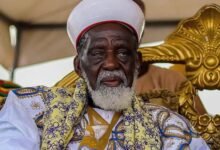
Some Members of Parliament (MPs) have expressed displeasure about how the Centre for Democratic Development-Ghana (CDD-Ghana) analyses findings in its Afrobarometer survey.
They did not understand how the study summed the ‘all’ and ‘most’ responses to obtain the most corrupt institution in the country and put them in the same bracket including the police, judges, magistrates, MPs, civil servants and tax officials.
The MPS realise the analysis
as a deliberate attempt to taint Parliament however, they noted that the survey
was necessary to permit the citizenry to share their views and prompt
policymakers that watched.
Rockson-Nelson Dafeamekpor, the MP for South
Dayi, in the Volta Region, expressed displeasure about how the CDD analyses
findings in its Afrobarometer survey.
He did not understand how the study summed the
“all” and “most” responses to obtain the most corrupt public institution in the
country saying “I have a problem with structure of analysis and questioned how
possible ‘all’ and ‘most’ are same and put in same bracket, when you are
analysing opinions, people who say “all are corrupt” will certainly be
different from those who say “most are corrupt”.
“The analysis is a deliberate attempt to
taint Parliament when you lumped “all” and “most” together to give you higher percentage
damning institution I belong to, the survey is necessary to permit the
citizenry to share views and prompt policymakers”, Mr Dafeamekpor stressed.
An Afrobarometer study
published on Tuesday revealed that the citizenry perceived increase in
corruption level, giving the government low marks in fighting graft, showed
they perceived at least ‘some’ corruption in key public institutions, including
police, judges, magistrates, MPs, civil servants and tax officials.
Afrobarometer heads a pan-African, nonpartisan
research network that conducts public attitude surveys on democracy,
governance, economic conditions, and related issues across Africa and the team
in Ghana, led by CDD-Ghana, interviewed 2,400 adult Ghanaians between September
16 and October 3, 2019, sample size yields country-level results with
percentage points at 95 per cent confidence level. -myjoyonline.com







